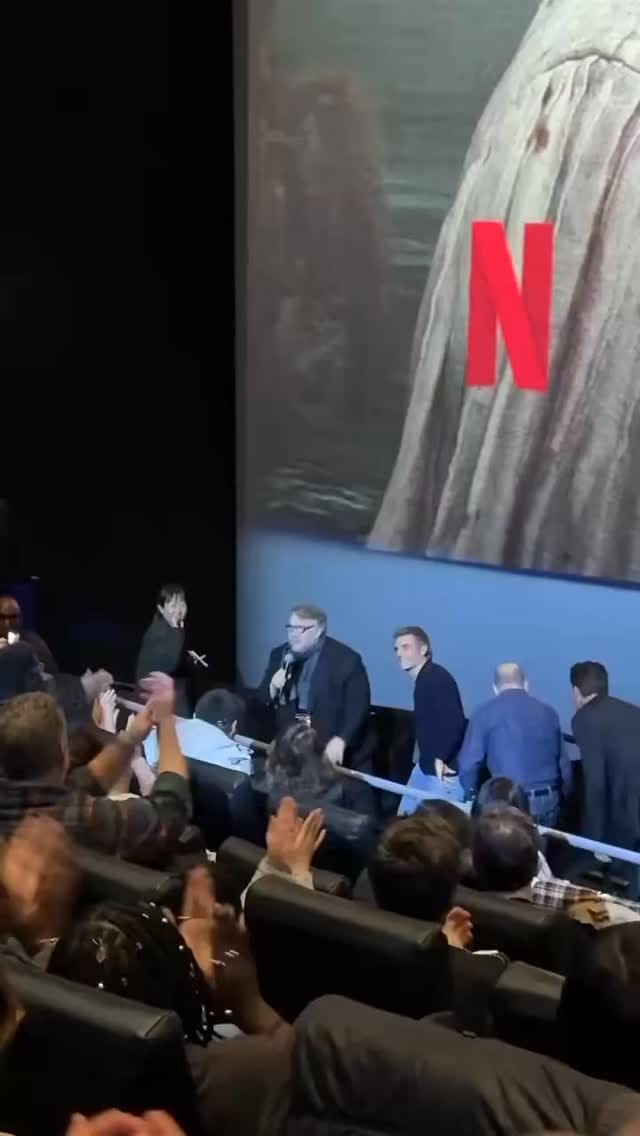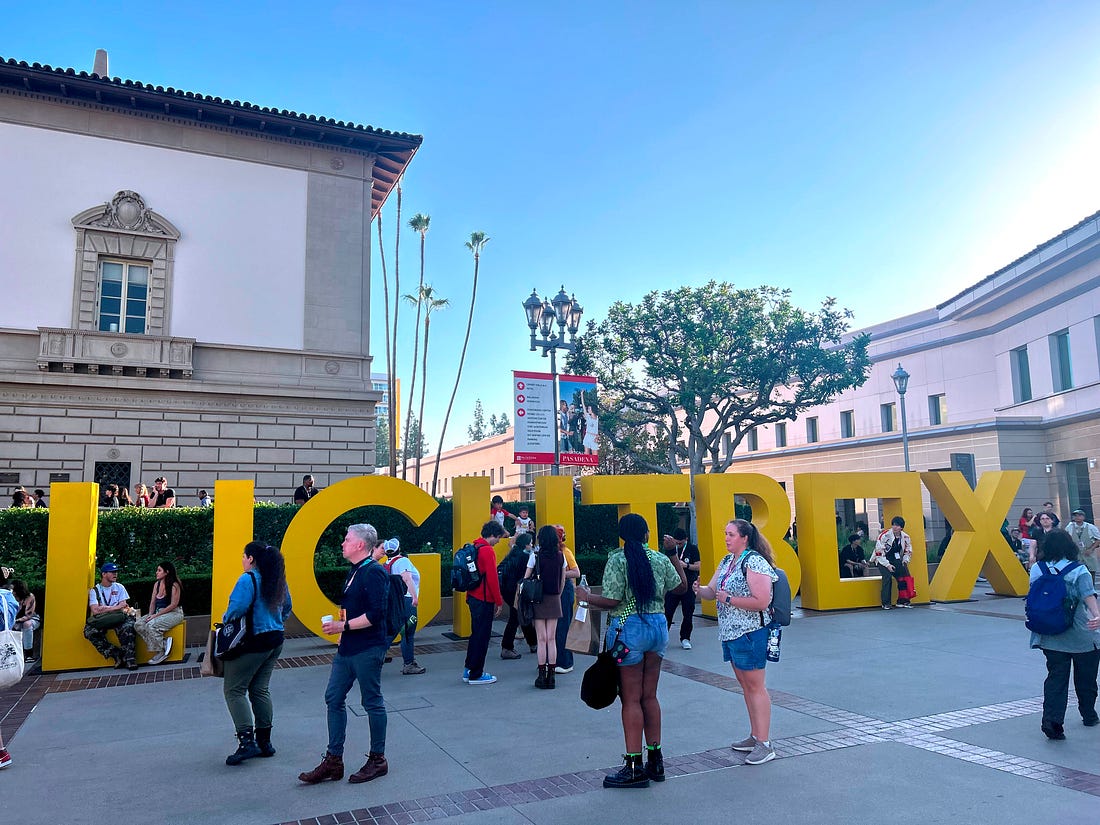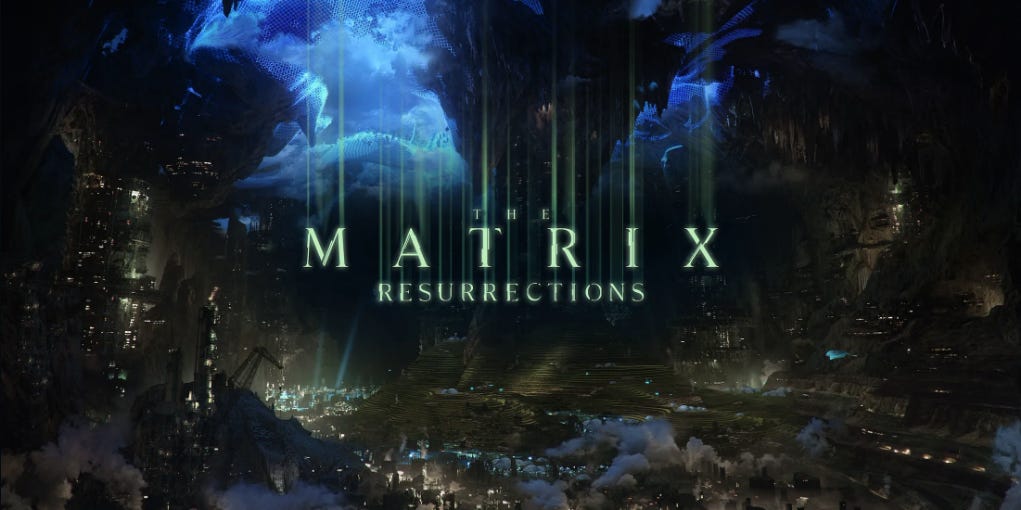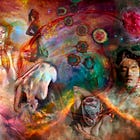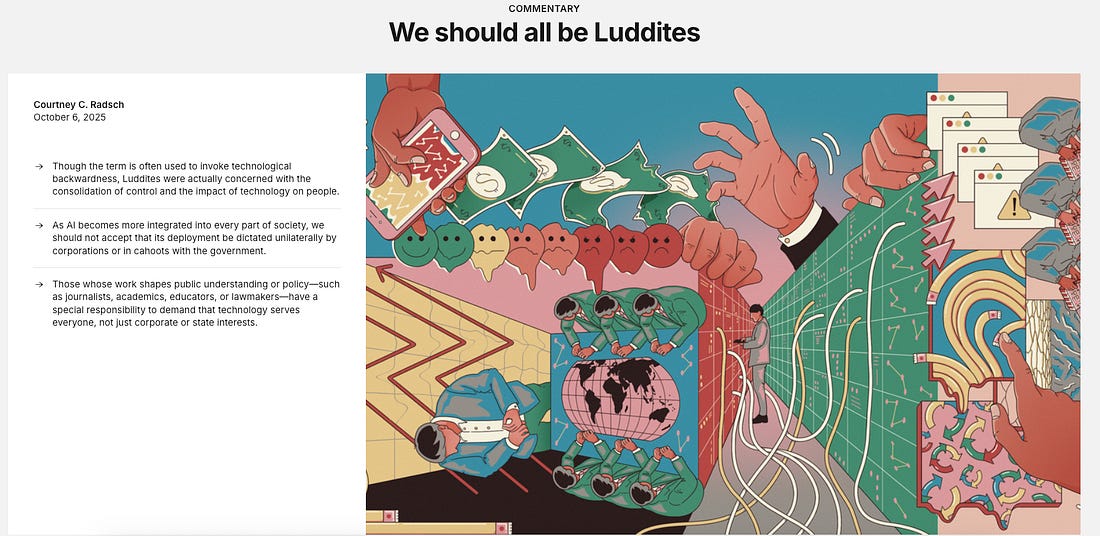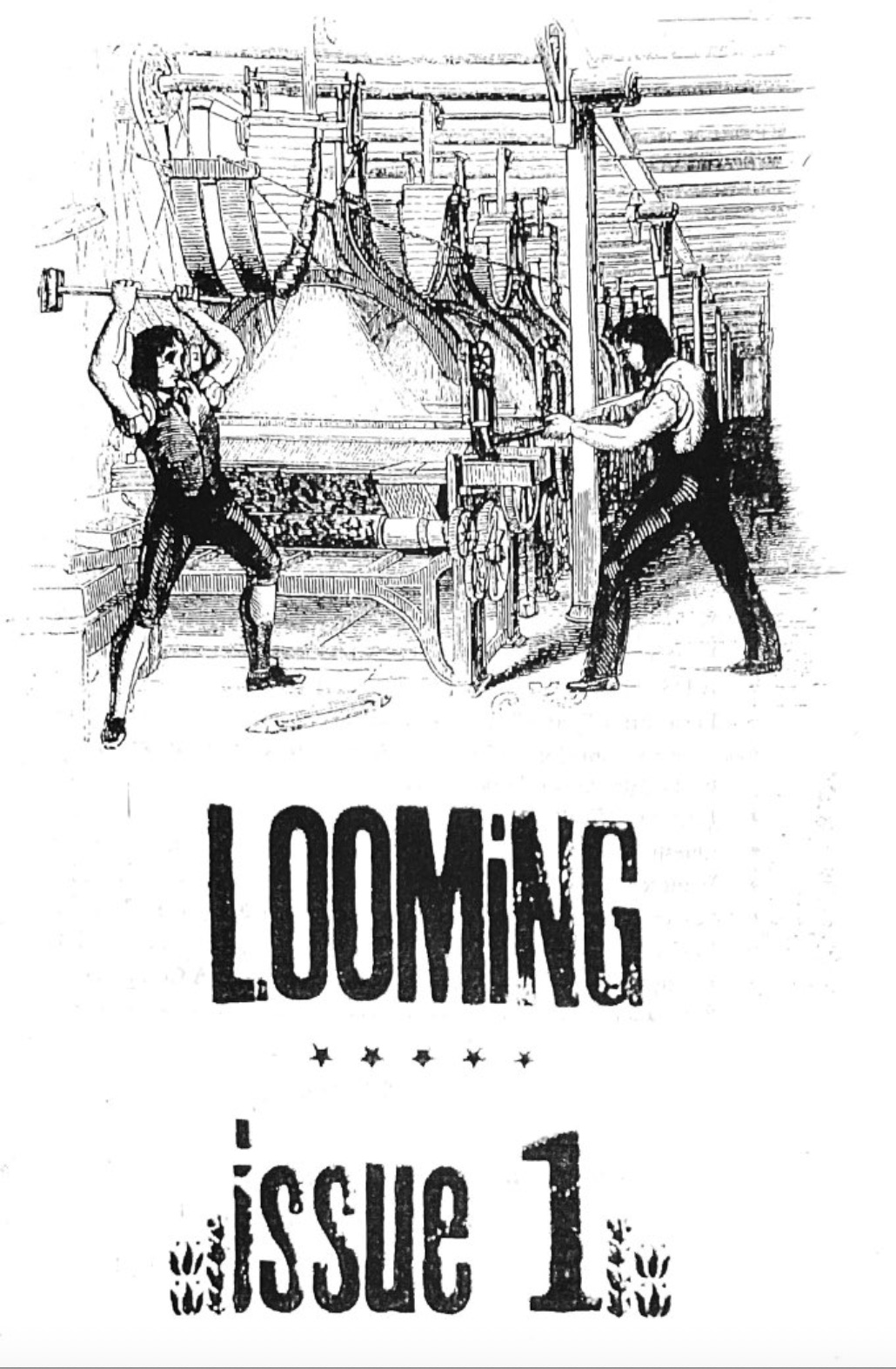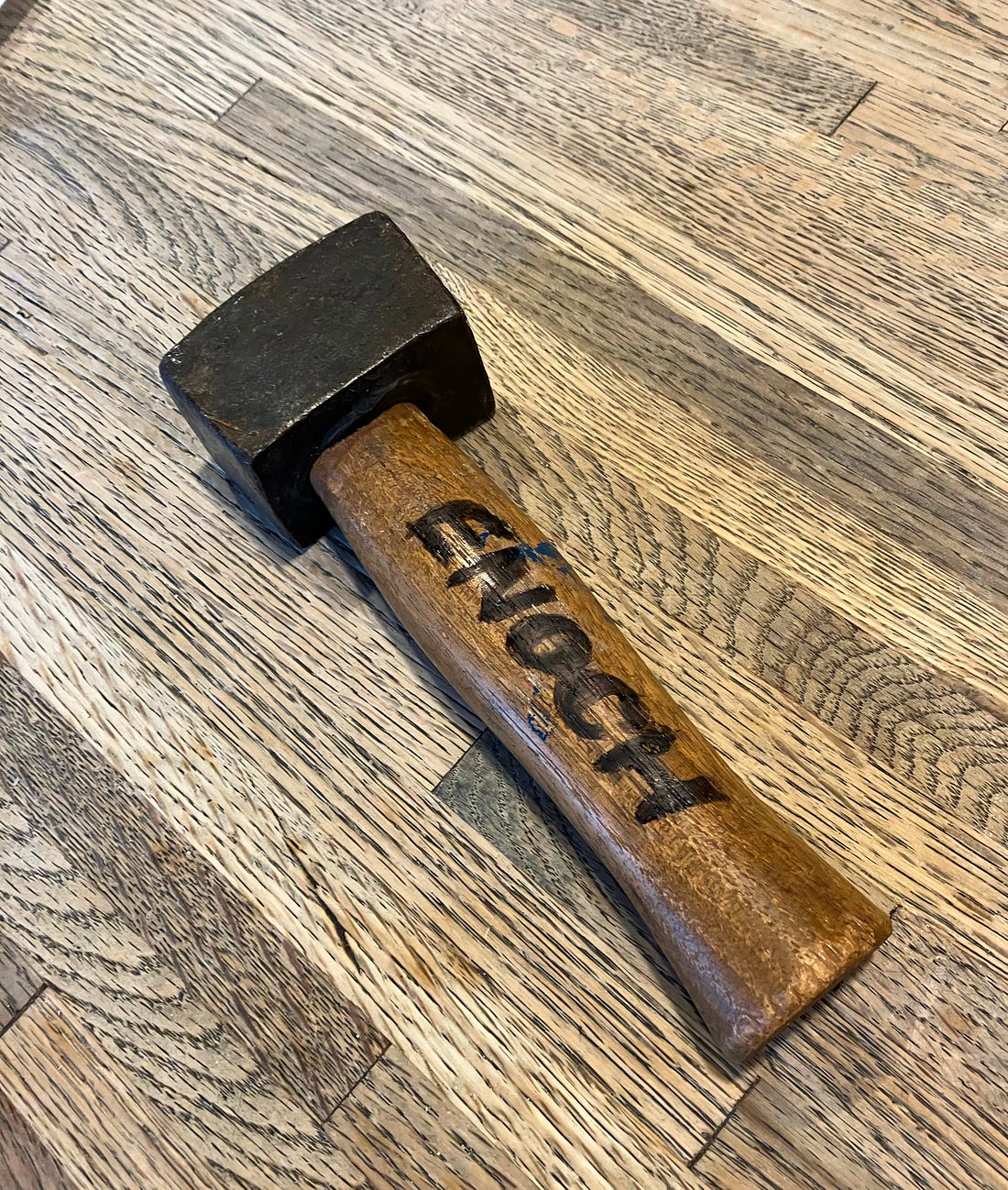How artists behind Marvel, Alien, and the Matrix movies are fighting AIWith solidarity, legislation, class action lawsuits, and a little help from Guillermo del Toro. Plus, the Luddite Renaissance continues, and I open the mailbag.Greetings all, I’m a little bleary today, as I wrote much of this after staying up late watching the Dodgers go 18 innings in a completely unhinged, 7-hour World Series game. I am not necessarily what you would call a Huge Sports Man, but you have to get into the playoffs or they kick you out of LA. My youngest was bouncing off the walls with his baseball glove on, and the oldest was keeping track of the count and the batting order, real Americana stuff. It was great. A little housekeeping: I am, as previously threatened, going to attempt a somewhat casual Blood in the Machine Live Video/Podcast enterprise, as inaugurated some months back with my chat with the great Karen Hao. Next up is Jacob Silverman, an excellent tech journalist and author of the just-released GILDED RAGE: Elon Musk and the Radicalization of Silicon Valley. We’ll do a live video chat for anyone who wants to join at 9 AM PST / 12 PM EST this Friday, October 31st, and will keep the comments open for questions. I’ll then release the episode in a newsletter edition afterwards and it *should* publish to all major podcast platforms then as well. Next week, I’ll have famed science fiction author and chief enshittification diagnostician Cory Doctorow on the bloody pod to discuss his new book on the topic—pencil in 4 PM PST / 7 PM EST on November 4th if you’d like to join the live chat. I also have a long piece in WIRED this week examining the contours of the AI bubble according to a framework laid out by two professors who wrote the book on tech bubbles, and concluding it that AI may well be something approaching the Platonic ideal of the form. Check it out. Finally, the only reason that I can do this work at all is because some of you are kind enough to support it by chipping in $6 a month or $60 a year. If you find value in reporting on topics like how workers and artists are weathering the AI boom—and how they’re fighting back, aka the subject of today’s edition—consider becoming a paid support so I can do more of it. Many thanks to all who do, you make this stuff possible. Thanks also to everyone who wrote in with thoughts and comments and words of encouragement after last week’s State of the Blood in the Machine report. I read and appreciate them all. OK! With that, onwards we go. Everywhere I went at the LightBox Expo in Pasadena last week, the artists were talking about it. The director Guillermo del Toro, on a press tour for his new Frankenstein film starring Oscar Isaac, succinctly dispensing his thoughts on AI: “Fuck AI.” It’s clear why the sentiment would resonate here: LightBox is one of if not the largest gatherings of artists (organizers estimate 17,000 attendees this year) who work in the entertainment industry, a profession that is uniquely threatened by AI-enthused executives and big tech companies. Some of the most harrowing stories I’ve heard in my ongoing AI Killed My Job project have been from artists who’ve seen their clients at ad agencies, video game companies, and entertainment firms turn to AI. “Work is still extremely hard to come by,” said Reid Southen, an artist who’s worked on Alien: Earth, and the Hunger Games and Matrix films, and who has become an outspoken critic of AI. “Film hasn’t bounced back since the strikes and games are experiencing even more layoffs with companies pivoting to AI. Independent artists and freelancers especially are finding it hard to make ends meet.” Last Friday, I braved a harrowing cross-town drive and an alarming lack of parking to check out one of the hotbeds of resistance to AI, and get a feel for the general sentiment and thinking of working artists, three years into the AI boom. I met Southen out front of the Pasadena Convention Center, where a giant yellow block letters spelled out LIGHTBOX. “We’ve entered year three of these impacts and people are very worn out and tired, Southen says. “There’s been good movement on the lawsuits so there’s some optimism there, but I think a lot of artists are wondering how much longer we can stick it out.” He continues: “but there’s some serious solidarity there with an overwhelming sentiment of ‘Fuck AI!” LightBox, which was founded by the artist Bobby Chiu and the filmmaker Jim Demonakos, has a straightforward “No AI” policy, as articulated by this Instagram post a month before the show:
Chiu, an Emmy-winning artist who’s worked on films like Alice and Wonderland, told me he organizes these events to "shine the light on the artists behind our favorite things.” It seems like he’s succeeded. I met video game artists, graphic novelists, and artists who’d worked on blockbusters like Avatar. “When I saw AI and what it was doing, my first thought was, ‘this is dangerous’,” Chiu told me. He was worried both about disinformation and labor issues. “If an artist takes ten years, twenty years, thirty years, to develop their amazing look on the world, their own interpretation of the world, creating their own worlds—and that can be taken away from them without their permission, to create more stuff that looks like it? Even if it’s a watered-down version, that really feels like theft.” Most artists I met at LightBox, though not all, did indeed espouse a pointed hostility to AI, though most did so with a smile. AI sucked, was a joke, was boiling the oceans to line the pockets of Silicon Valley. Artists talked about clients sending them AI-generated prompts and images to build off of—and even sending ChatGPT-generated notes to their work in return. Others worried that clandestine AI use was growing in their communities, as overworked and underpaid artists struggled to keep pace with demands of clients expecting AI-like volume. I spoke to one concept artist who feared AI was inevitable and said she was learning to use it, and one producer who felt the “genie was out of the bottle” and that AI could be useful in certain cases, though that was about it for the pro-AI side of the column. The predominant sentiment by far was anger at what the AI companies were trying to do to artists’ livelihoods, followed closely by dismissal. There was what I might describe as a widespread ambient hopefulness that the AI bubble would burst soon, and undermine the business case for media and entertainment industries adopting it. Maybe it was because there was such a large community of artists who’d flown in from all over the world to spend the weekend together, and that the vibes were generally good—at any given moment, you’d see dozens of artists, notebooks open, perched on the convention center steps or in a conference lobby nook, drawing away—but most talked about AI with a mixture of anger and levity, not outright despair. Or maybe it’s because, for the moment, there’s reason to be hopeful. After brazenly deploying its video generation app Sora with no controls at all for which intellectual property could be used at all, OpenAI signaled a retreat when Hollywood and rights holders pushed back. A major class action lawsuit against Anthropic recently broke the authors’ way. And legislation that would meaningfully protect artists’ rights by forcing AI companies to be transparent about which works were in their datasets is gaining steam. In a packed panel talk, “The Fight for Artists Against GenAI,” the illustrator and concept artist Karla Ortiz, who’s worked for clients like Marvel Studios, Blizzard, and HBO, and is part of an ongoing class action lawsuit against AI image generation companies, sounded notes of optimism. “The conversation has shifted,” she said, “for the better, and for artists in general. There’s a movement for artists saying ‘we don’t want to see AI in our media.” The lawsuit has moved into the discovery phase, a landmark that tech companies hoped to avoid. But despite the momentum on behalf of artists and workers, Ortiz noted that firms like Midjourney and OpenAI were still barreling ahead: “Companies are still doubling down though, legality issues be damned, apparently.” Also on the panel was Deana Igelsrud, the legislative & political advocate of the Concept Art Association, who was optimistic about AB 412, a California bill now slated for the state’s 2026 legislative session. The bill would require AI companies to be transparent about their use of copyrighted works, require them to disclose their use to artists, and provide a mechanism for artists to take civil action against the AI companies if they do not. (Notably the bill is authored by Rebecca Bauer-Kahan, who also authored the LEAD act that would have forced chatbot manufacturers to ensure their products did not harm children, which Governor Gavin Newsom vetoed this year.) Igelsrud described the outpouring of support for the bill thus far, and an episode in which scores of artists showed up at the Sacramento capitol building for a hearing, taking the AI companies and their legal counsel by surprise. Voice actors, writers, and artists piled into the room and took turns entering pleas for legislators to consider their plight, Igelsrud said, and the impact the speeches had was palpable. “It’s great to have a voice actor as your spokesperson,” she laughed. “Three fourths of the room were supporters of the bill, and the legislators were shocked.” Ortiz, who was there, chimed in: “There were some bricks hitting the floor,” she said. “One of the coolest moments of that day,” Igelsrud continued, was that after the hearing, “we had to go down that big spiral staircase, all walking in circles. I looked up, and it was four stories of artists, all walking down.” “For anyone that’s like ‘oh we can’t do anything’,” Ortiz said, “moments like that show that we can.” The legislature granted the bill another hearing, but, in a twist, decided to hold it not in Sacramento, but in the heart of Silicon Valley. “They’re going to hold it in Palo Alto, where big tech can bring all its people,” Ingelsrud said. The hearing is currently on the docket for sometime in early December; a hard date has not yet been announced. (When it is, I’ll be sure to note it here.) Ortiz and Igelsrud encouraged audience members, artists, and creators everywhere to get ready to support the hearing, however they can. They pointed to a petition artists and supporters can sign online. If they can back the courthouse with artists and human creators, in the belly of the beast, they said, it would be a powerful symbol indeed. And that echoes the broader sentiment I found across LightBox, where artists were ticked off, anxious and concerned, but certainly not down for the count. “Artists are resilient creatures,” Southen said, “and I do think we’ll come out the other side intact. I just hope it’s sooner rather than later.” “They’ve got money,” Ortiz said, “but it doesn’t matter if we’ve got people.” Updates from the Luddite RenaissanceThe so-called Luddite Renaissance continues apace, with events and actions unfolding across New York and beyond. Even the center-left think tank Brookings is getting into the Luddism: It published this commentary by Courtney Radisch that argues “We Should All Be Luddites.” I couldn’t agree more. Friend of the BLOOD Katie Conrad pointed me to this intriguing collective called the Library of Babel Group, which is, in its words,
Sounds great. Conrad is also publishing a luddite zine, which is called—wait for it—Looming. I repeat, there is a luddite zine in circulation. I’ve been reading through it, and I’m loving it. You can download the whole issue here, but since it’s a zine, I highly recommend printing it out and stapling it down the spine as God intended. Continuing in that vein, there’s a fantastic-sounding conference on the philosophy of tech refusal, taking place in the Netherlands at Maastrict University. The brief, and call for submissions, is here:
Elsewhere, BITM reader Joanna Knox shares this great story she wrote for the independent New Zealand outlet the Spinoff, about her experience working for a data annotation firm that serves big AI companies. The piece paints a picture of what tends to happen to the invisible workers big tech relies upon to keep its products salable: Declining wages, unpaid labor, and relentless overwork. A companion story examines, fittingly, for this issue, the impact of AI on New Zealand creatives. Finally, reader Vivian Gainer emails in this note, which I’ll share with her permission:
You better believe I got emotional reading that message. And I’m glad that there’s at least one other person out there who keeps a symbolic yet very tangible hammer at the ready. Alright! That’s it for today. Take care out there, and hammers up. You're currently a free subscriber to Blood in the Machine. For the full experience, upgrade your subscription. |

